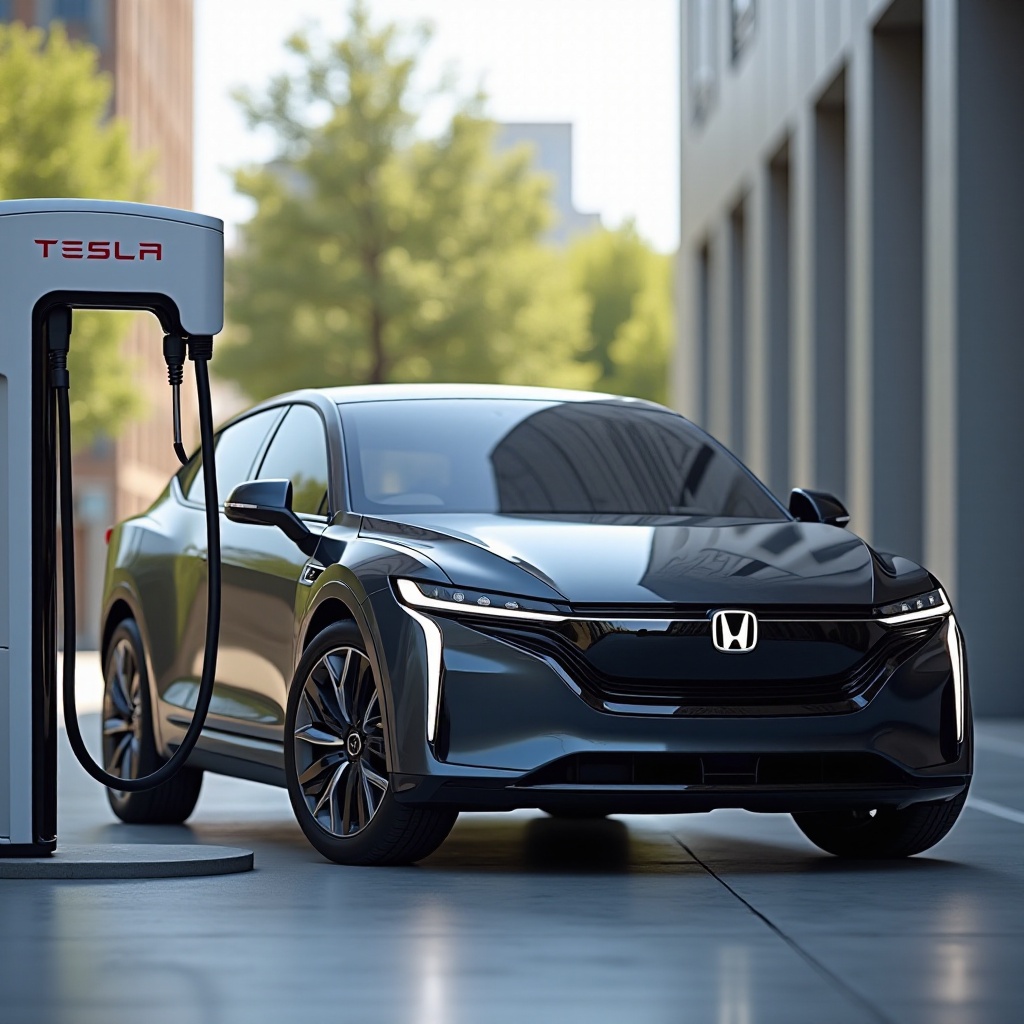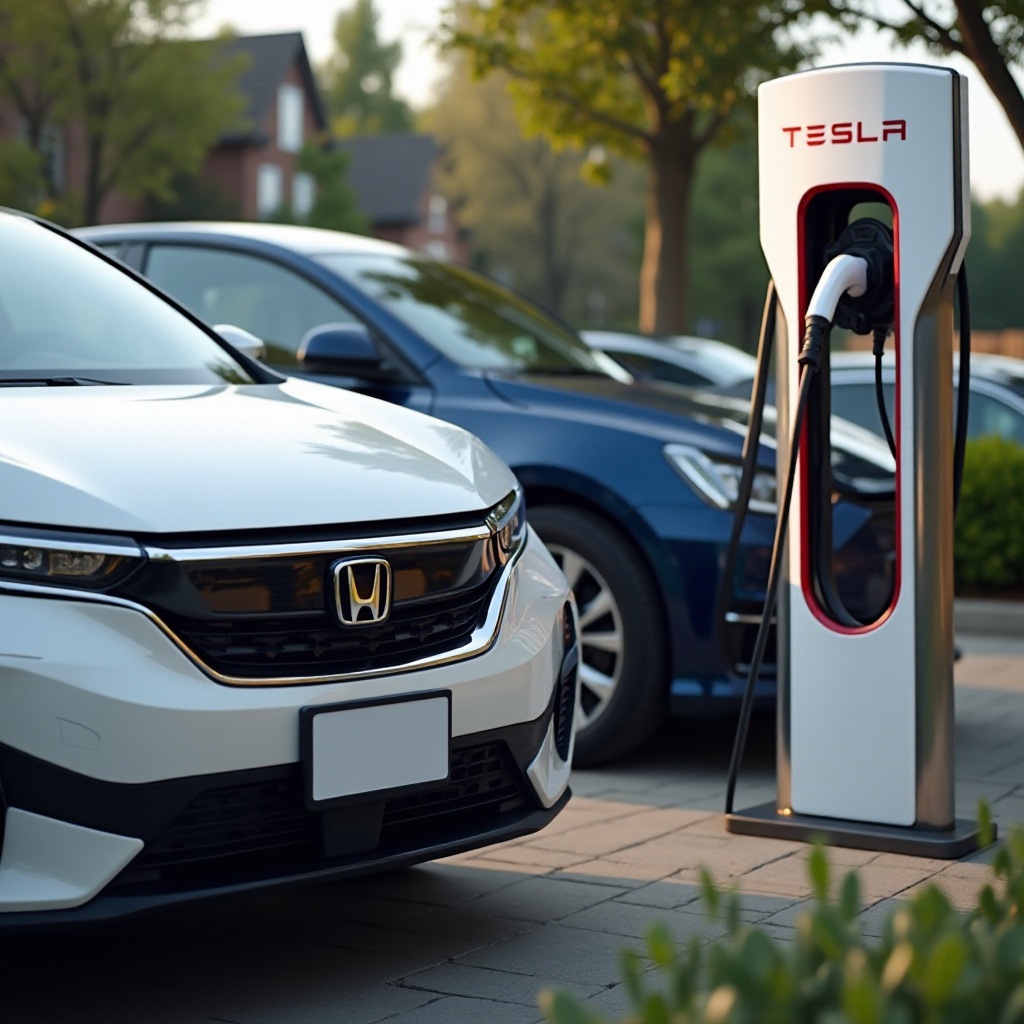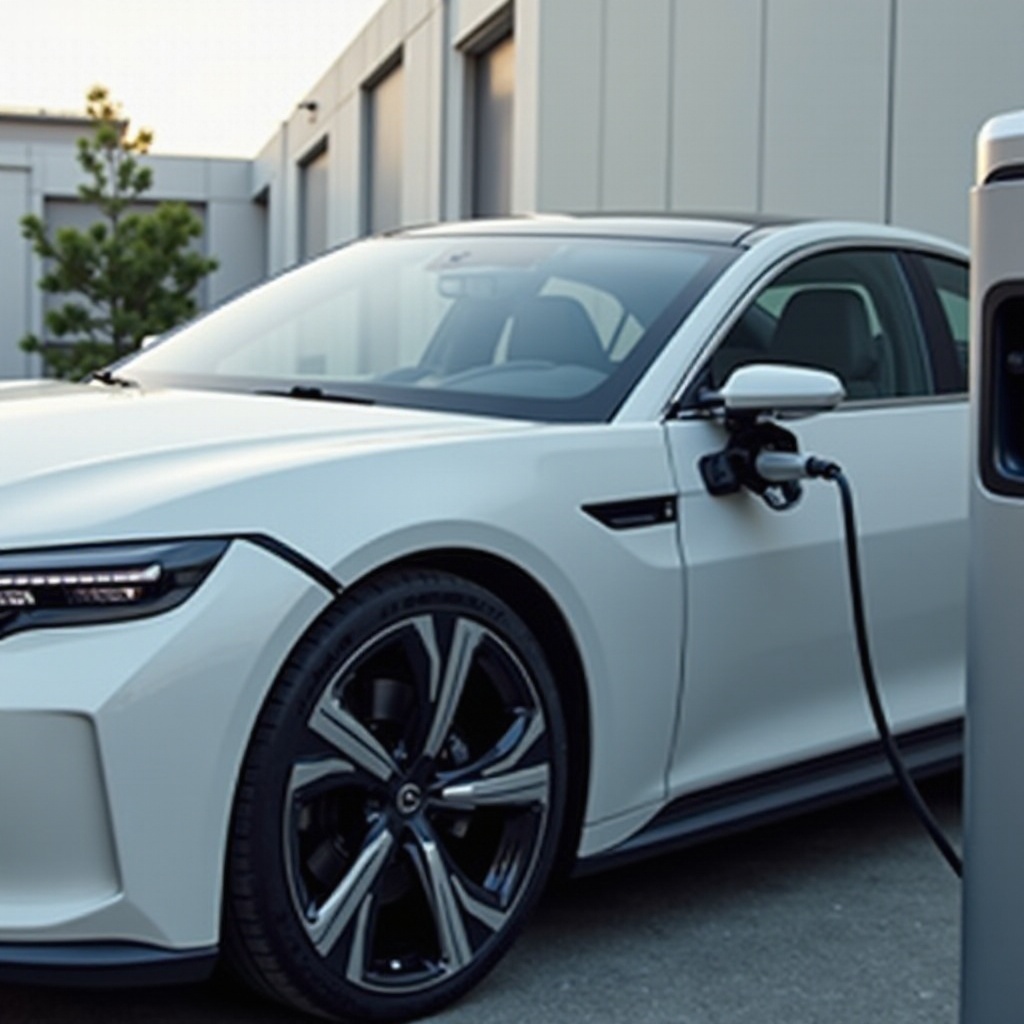Introduction
The Honda Prologue marks a significant step for the brand into the electric vehicle (EV) market, prompting questions about its charging capabilities. A common query among Honda Prologue owners and potential buyers is whether it can use Tesla Chargers. This guide delves into EV charging standards, the Prologue’s charging capabilities, and Tesla Superchargers. Additionally, we explore compatibility challenges and potential solutions, providing a detailed overview of the future of EV charging interoperability.

Overview of Electric Vehicle Charging Standards
Electric vehicle charging standards are critical in determining how and where you can charge your EV. Different standards exist globally, each with its own design and electrical parameters.
-
CHAdeMO: Primarily used by Japanese manufacturers like Nissan and Mitsubishi, CHAdeMO allows high-speed charging and is a common standard in several parts of the world.
-
CCS (Combined Charging System): Widely adopted by American and European car manufacturers, the CCS combines AC and DC charging, making it versatile and efficient.
-
Tesla Proprietary Connector: Tesla has its own unique connector design in North America, creating an obstacle for non-Tesla EVs wanting to use Tesla’s extensive Supercharger network.
-
GB/T: Primarily used in China, this standard governs both the physical connectors and communication protocols between the EV and the charger.
Understanding these standards is crucial for EV owners, especially when exploring cross-brand charging options. Grasping these can help clarify whether a Honda Prologue, or any other EV, is capable of using Tesla’s advanced charging infrastructure.

Honda Prologue Charging Capabilities
The Honda Prologue is equipped with impressive charging capabilities to compete in the burgeoning EV market. It supports both AC and DC fast charging, adhering largely to the CCS standard, aligning with prevalent practices in both America and Europe. This facilitates versatility in charging options.
-
AC Charging: Using a Level 2 charger, commonly found in residences and public charging stations, the Honda Prologue can achieve a full charge in approximately 8-10 hours, making overnight charging a practical option for many users.
-
DC Fast Charging: For quicker top-ups, the Honda Prologue is equipped to handle DC fast charging, achieving up to 80% charge in just 30 minutes, depending on the charging station’s output.
-
Onboard Charger: The Prologue includes a robust onboard charger that manages and optimizes the charging process, ensuring safety and efficiency.
These capabilities make the Honda Prologue suitable for daily commuting and longer journeys, provided that the necessary infrastructure is accessible. However, how does it stack up against Tesla’s Supercharger network?

Tesla Superchargers: Key Features
Tesla Superchargers are pivotal to Tesla’s user-friendly EV experience, offering unmatched convenience and performance.
-
Network: With over 25,000 Superchargers globally, strategically placed along major highways and in metropolitan areas, Tesla makes long-distance travel more convenient for its users.
-
Charging Speed: Delivering up to 250 kW of power, Superchargers enable incredibly fast charging times, providing a Tesla vehicle with up to 200 miles of range in a 15-minute charge.
-
Cost: While not free, the cost of using a Supercharger is often competitive, potentially lower than the price of traditional fuel, especially in regions with high gas prices.
-
Integration: Superchargers are seamlessly integrated with Tesla’s navigation system, guiding users to the nearest charger and prepping the battery for optimal charging upon arrival.
These features make Tesla Superchargers exceptionally convenient for Tesla owners. However, their proprietary nature can be a significant hurdle for owners of other brands, like the Honda Prologue.
Compatibility Challenges
Compatibility between different EVs and charging infrastructure remains a significant challenge. Tesla’s proprietary connector design in North America creates barriers for non-Tesla EVs.
-
Connector Incompatibility: Tesla’s Supercharger connectors differ from those used by other EVs, meaning that a Honda Prologue cannot physically plug into a Supercharger without an adapter.
-
Software Communication: Beyond physical connections, EVs and charging stations communicate via specific protocols. The Honda Prologue uses CCS, whereas Tesla uses its own protocol, causing communication failures between the vehicle and the charger.
-
Access Restrictions: Even if connector and communication issues are resolved, Tesla has policies restricting access to Superchargers for non-Tesla EVs to ensure availability and performance for Tesla owners.
Overcoming these technical and policy hurdles is essential for cross-brand charging, making the current compatibility between the Honda Prologue and Tesla Superchargers practically non-existent. However, there are potential solutions and future trends that offer hope for improved interoperability.
Potential Solutions for Cross-Brand Charging
Solving cross-brand charging dilemmas involves innovation and cooperation between car manufacturers and charging networks.
-
Adapters: Developing adapters that enable different connectors to fit into each other could allow a Honda Prologue to use a Tesla Supercharger physically.
-
Software Updates: Implementing software updates to facilitate communication between different EVs and chargers can help, potentially involving the development of universal communication protocols.
-
Collaborative Networks: Ongoing discussions between car manufacturers aim to create universally accessible charging networks. For instance, Tesla has hinted at opening its Supercharger network to other brands, requiring significant negotiation and standardization.
-
Government Initiatives: Regulatory bodies can promote standardization. Governments can mandate interoperability, ensuring a uniform charging experience for all EV users.
These potential solutions offer a pathway to a more integrated EV charging ecosystem. While not immediate fixes, they represent the industry’s move toward cross-brand compatibility.
Future Trends in EV Charging Interoperability
The future holds significant promise for EV charging interoperability.
-
Universal Charging Standards: Efforts are underway to create universal charging standards that all EVs can use, simplifying the user experience and broadening charging infrastructure accessibility.
-
Open Charging Networks: Tesla and other companies might open their proprietary networks to other brands, facilitating wider EV adoption.
-
Technological Innovations: Emerging technologies like wireless charging could revolutionize current charging paradigms, potentially eliminating connector incompatibility issues.
-
Expanded Infrastructure: Expanding public charging stations equipped with multiple connector types enhances interoperability. Cross-brand alliances could see networks like Tesla’s Superchargers adopting universal connectors.
These trends could make cross-brand charging seamless, providing EV owners with unmatched convenience and flexibility.
Conclusion
While the Honda Prologue and Tesla Supercharger interoperability currently face challenges, the evolving EV industry shows promise. Efforts toward standardization, innovative solutions, and collaborative initiatives hint at a future where charging an EV, regardless of brand, will become universally compatible and convenient.
Frequently Asked Questions
Is it possible to use an adapter to charge the Honda Prologue at a Tesla Supercharger?
Currently, no direct adapter allows the Honda Prologue to use Tesla Superchargers in North America. Although third-party solutions may emerge, they often come with limitations and risks.
What are the potential risks of using a non-compatible charger with the Honda Prologue?
Using a non-compatible charger can lead to several issues, including damage to the vehicle’s battery, voiding warranties, and safety hazards. It is crucial to follow the manufacturer’s guidelines.
Are there any upcoming collaborations between Honda and Tesla regarding charger compatibility?
As of now, there are no public announcements about collaborations between Honda and Tesla for charger compatibility. However, industry trends suggest that future partnerships or agreements could emerge, given the push for universal standards.
